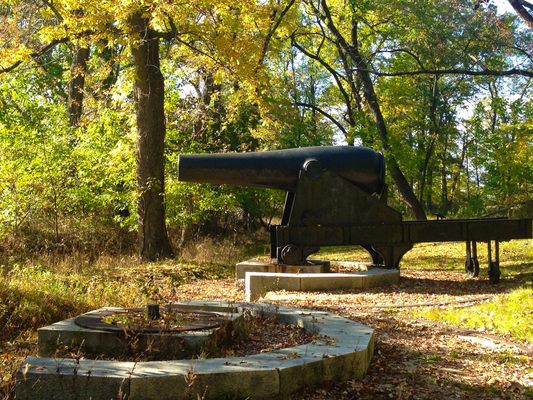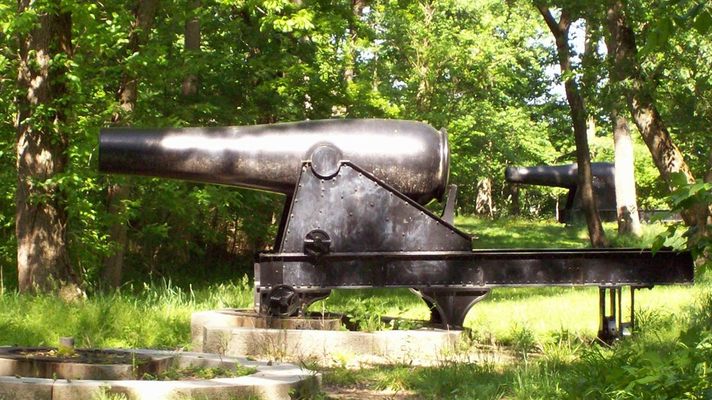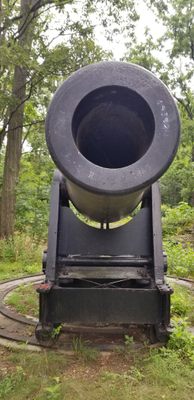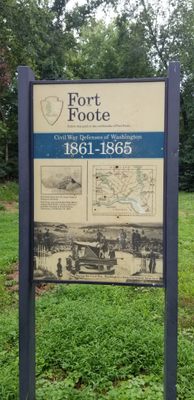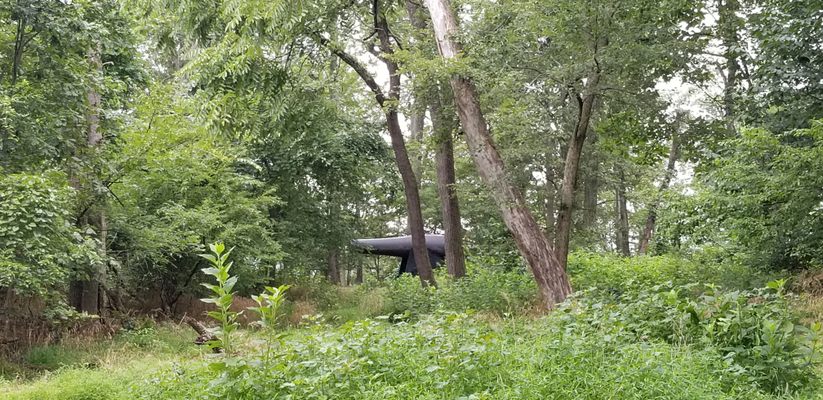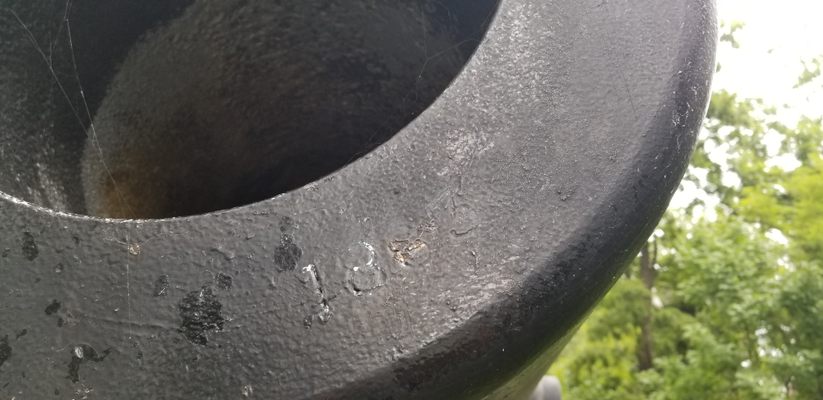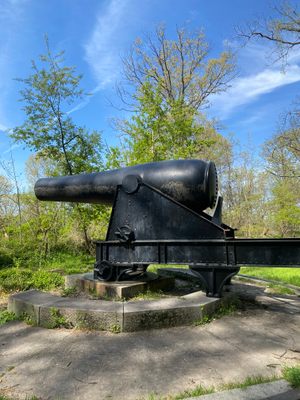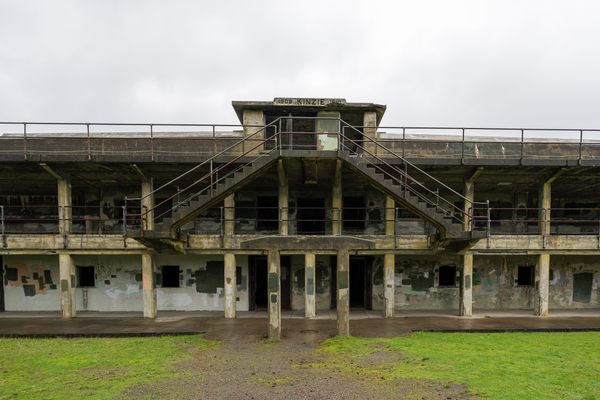About
Out in the woods along the Potomac River, six miles south of Washington, D.C., a pair of monumental coastal artillery guns peer out through the foliage and lay in wait for bushwhacking explorers. The twin Rodman Guns date to the Civil War and recall the defensive blitz that briefly transformed the city into the most heavily armed camp on in North America.
During the Civil War, Washington was shielded by a hastily constructed ring known collectively as the Circle Fort system. To protect the all-important river approach to the city, four companies of the 9th New York Heavy Artillery cut Fort Foote out of virgin woodland on a strategic bluff with commanding views. Packed earth embankments 20 feet thick shielded lines of rifle pits, two absolutely massive 49,000 pound 15 inch Rodman guns, and a complement of smaller artillery.
The Rodmans were powered by 40-pound explosive charges that could hurl 500-pound solid cannonballs onto targets three miles away. These Coke bottle-shaped guns were revolutionary for their time (their barrels strengthened with a “wet chill” casting process) and were the largest guns in use during the Civil War.
Fort Foote’s Rodman Guns were never fired in anger during the Civil War, and by 1878 the position was left in the hands of a lone female caretaker, selected the newspapers said “because of her knowledge of Fort Foote and because she is a soldier-wife and not afraid to live alone in such an isolated place.”
Fort Foote was in rough shape by the turn of the century despite these noble conservation efforts, with parapets eroding and dismounted cannons slowly sinking into the earth. A National Parks Service restoration effort in the mid-1980s poured new concrete mountings and saved the Rodman Guns for future generations.
Related Tags
Community Contributors
Added By
Edited By
Published
October 16, 2017
Sources
- https://www.nps.gov/fofo/learn/historyculture/index.htm
- https://www.newspapers.com/image/100777128/?terms=%22fort%2Bfoote%22
- https://www.newspapers.com/image/165707569/?terms=%22fort%2Bfoote%22
- https://www.newspapers.com/image/71847971/?terms=%22fort%2Bfoote%22
- https://www.nps.gov/fofo/learn/historyculture/stories.htm
- https://books.google.com/books/about/Mr_Lincoln_s_Forts.html?id=3qRIuDHJoTEC
- https://www.nps.gov/fowa/learn/historyculture/mammoth.htm
- https://www.google.com/maps/place/Fort+Foote+Park/@38.7679329,-77.0247248,1736m/data=!3m1!1e3!4m13!1m7!3m6!1s0x89b7b00f7de4f861:0x60e8945e7fe721c4!2s8626+Fort+Foote+Rd,+Fort+Washington,+MD+20744!3b1!8m2!3d38.7707081!4d-77.0186162!3m4!1s0x89b7b0198750abfd:0xe681ada4e10a7149!8m2!3d38.7669063!4d-77.0251974
